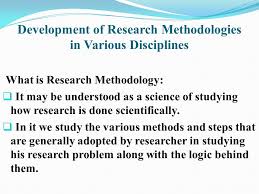Methodologies For Development Study – Anthropology Notes – For W.B.C.S. Examination.
উন্নয়ন অধ্যয়নের জন্য পদ্ধতি – নৃতত্ত্ব নোটস – WBCS পরীক্ষা।
Developmental research is a difficult endeavor. Articulating and testing theoretical notions about developmental phenomena often requires dealing with a variety of entities, multiple levels of inquiry, and multidirectional change simultaneously occurring on multiple time scales.Continue Reading Methodologies For Development Study – Anthropology Notes – For W.B.C.S. Examination.
As such, developmental researchers have demanded and continue to demand innovative analytical methods, research designs, and measurement tools. In turn, methodological innovations and the empirical results derived from them have challenged existing theoretical perspectives and pushed for further precision and refinement in how we think about behavioral change. Wohlwill (1991) described this dialectic interchange as a dance where theory and method stand toe-to-toe – each sometimes leading and sometimes following the steps and movements of the other. With this special issue we hope to drive the beat forward and quicken the pace of this dance by explicitly highlighting the influence that methodology has on the progression of developmental inquiry.
Drawing expertise from some of the young methodologists emerging from quantitative methodology programs around the country, this collection of articles explores how contemporary methods can interface and be used effectively in the study development. Our goals are at least twofold – to demonstrate how some of the recent methodological innovations might be applied in the study of development, and to foster the future development of methods for articulating developmental questions. While not quite a true “rave” – we hope that this compilation promotes the “techno”(−logy) of today so that the dancing continues all-night and into tomorrow.
M. Edwards and R.J. Wirth (2009) start us off by highlighting the importance of measurement in the study of developmental change. They provide an introduction to and review of classical and contemporary measurement models, and illustrate how innovations in scale equating and measurement invariance provide for additional opportunities to chart change in constructs that are expressed and must be measured differently at different times (e.g., delinquency). Acknowledging and dealing with the realities and necessities of age-appropriate measurement head on, they outline a measurement framework that opens up new possibilities for effective use of longitudinal data that might have been, in previous times, viewed as problematic.
L. Hoffman and R. Stawski (2009) illustrate how multilevel models can be used to unpack various sources of behavioral change and stability. They explain and illustrate with didactic precision how multilevel models can be used to separate and investigate within-person and between-person sources of variance. Underscoring the link between theoretical considerations and model specifics, they provide a guidebook for implementing and making effective use of the latest innovations in analysis of repeated measures (e.g., daily diary) data and investigation of context effects.
K. Grimm and N. Ram (2009) target another issue that is at the heart of lifespan research, interindividual differences in development. They introduce and illustrate the utility of a second-order growth mixture model for describing unobserved heterogeneity in change. Combining factor analytic, measurement invariance, latent growth, and mixture models, they illustrate how the benefits of multivariate assessment might be combined with the utility of categorical latent variables for identifying typologies – groups of individuals who follow qualitatively different change trajectories.
J. Selig and K. Preacher (2009) explore the interface between contemporary mediation models for longitudinal data and the study of development. They discuss the goals of mediation analyses, highlight the importance of longitudinal data for testing meditation hypotheses, and discuss how a variety of longitudinal models may be used to investigate the mechanisms by which contextual factors or developmental processes affect developmental change. Their review and illustrations point to the ways in which longitudinal models of change might be used to study possible causes and outcomes, while also underscoring the cautions that must be taken in doing so.
K. Masyn (2009) reviews a family of frailty and survival models and places them within a general latent variable modeling framework. She illustrates how the incorporation of categorical latent variables opens up the possibility for modeling and examining unobserved heterogeneity in the experience and timing of recurrent life events. For the study of development, such an approach promises to help us better understand a multitude of both single and repeated events or transitions ranging across the lifespan (e.g., delinquency, pregnancy, or disability).
Each article provides an introduction/overview of a method or class of methods and illustrates through example how the method can be applied to developmental data. These are meant to be the type of articles we would give to our students (or advisors) to learn more about these analytical approaches and methods with which they might up to now be peripherally familiar or would like to review. In the process of putting them together, we have certainly learned from each other and had the types of interdisciplinary dialogues that lay the groundwork for future work. In this regard, RHD hopes, somewhat selfishly, to have fostered these young methodologists’ thinking about developmental questions. There is no doubt that with their involvement the study of development will continue to be the best dance-party on the block.
Please subscribe here to get all future updates on this post/page/category/website


 Toll Free 1800 572 9282
Toll Free 1800 572 9282  mailus@wbcsmadeeasy.in
mailus@wbcsmadeeasy.in



















































































































